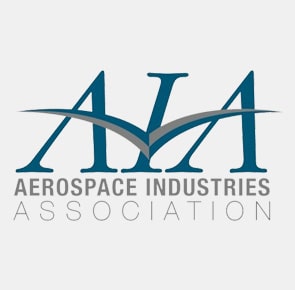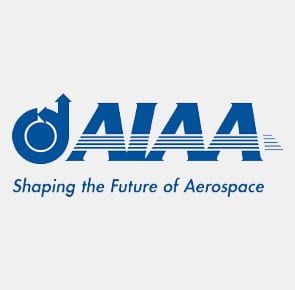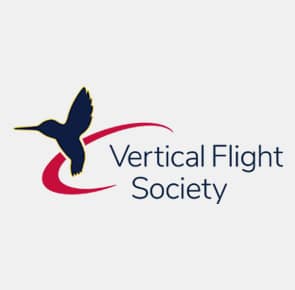What Does a Career in Aerospace Engineering Entail?
As an aerospace engineer, you’ll be mainly responsible for helping to build flying vehicles including aircraft, spacecraft, and experimental vehicles and also making needed improvements. These machines include gliders, aircraft, unmanned aerial vehicles (UAV), and satellites. If these flying machines are your major responsibility, you may be referred to as an aeronautical engineer.
Your counterparts may work on flying craft intended to fly in space. Rather than aerospace or aeronautical engineers, they may be called astronautical engineers. You can expect to work in one of several specific states in the United States, were factories build aircrafts and spacecrafts, or near NASA locations. Fully trained aerospace engineers may work for private corporations or government agencies.
Featured Online Aerospace Engineering Programs
How to Become an Aerospace Engineer
In some community colleges, a major in aerospace engineering requires earning between 63 and 93 credits, including program prerequisites, general education, and major-specific courses. Some programs may also require restricted electives for students pursuing an AAS in aerospace engineering.
In a Bachelor of Science in Engineering (BSE) program, students can choose an aerospace engineering track or a different engineering specialization, such as materials, environmental, or chemical engineering. Aerospace engineering students will take general education, core engineering courses, liberal arts classes, and technical courses like aircraft design and rocket science. By graduation, they typically complete around 128 credits.
To fully specialize in aerospace engineering, a master’s degree is necessary, adding roughly 60 credits or 18 months to 2 years to your education.
Typical Certifications Needed
Once you graduate, you may want to obtain a certification from the United States Federal Aviation Administration (FAA). Even though it may not be required, it can communicate to potential employers that aerospace engineers have the knowledge and skills needed to create theoretical and physical designs for aircraft and spacecraft. Because most private companies and the FAA strive to ensure that new aircraft have been designed to the highest safety specifications, this certification can help you show that you are up to the challenge.
Academic Standards
 While you are in your bachelor’s or master’s aerospace engineering program, you’ll be required to maintain a specific level of academic standards. At one university, its Mechanical and Aerospace Engineering Department has created three goals. 1) To educate students in aerospace engineering so they can become future leaders in this industry; 2) provide helpful service to the country, profession and to the future development of engineering, and; 3) To conduct basic and applied research in both mechanical and aerospace engineering.
While you are in your bachelor’s or master’s aerospace engineering program, you’ll be required to maintain a specific level of academic standards. At one university, its Mechanical and Aerospace Engineering Department has created three goals. 1) To educate students in aerospace engineering so they can become future leaders in this industry; 2) provide helpful service to the country, profession and to the future development of engineering, and; 3) To conduct basic and applied research in both mechanical and aerospace engineering.
This means you need to earn grades that demonstrate your mastery of the field.
Find Your Online Aerospace Engineering Program
Exam/Experience Needed
You will be required to take and pass your Graduate Record Exam (GRE) before applying for admission to a graduate school. Ideally, your score should be 294 for the combined verbal and quantitative sections. If you have a GPA of 3.0 as an undergraduate student, you may be eligible for regular admission to the graduate program. If you hold a 3.3 GPA or above as an undergraduate student, you may be able to apply directly to the Doctoral Program.
Online Associate Degree in Aerospace Engineering
At the associate’s level, you’re going to take classes that are just the first of many steps toward your degree and eventual career in aerospace engineering. You’ll take classes in aviation knowledge. If you are orienting your studies toward an aerospace/aeronautics degree, you should find an aerospace engineering AAS major that allows you to go after a concentration in Aviation. You’ll take classes in security, human factors, occupational safety and health, aviation safety, aircraft maintenance, air traffic control and aeronautical science.
Here are a few example courses:
- Physics
- Introduction to Aeronautical Science
- Statistics with Aviation Applications
- Avionics
Online Bachelor’s Degree in Aerospace Engineering
As you work toward your BS in Aerospace Engineering, (BSAE), you’ll develop the skills to help you solve challenges in propulsion, design, and systems for aircraft. In this degree area, you’ll get hands-on experience working on different projects and in competitions. This way, you’ll learn real-world engineering principles that engineers around the world use. Your classes will focus on engineering-related labs in well-equipped facilities. You’ll also be able to work one-on-one with faculty members on engineering activities and research projects.
Here are a few example courses:
- Digital Circuit Design & Lab
- Thermodynamics
- Aerospace Design, I & II
- Aerodynamics, I-III & Lab
Online Master’s Degree in Aerospace Engineering
Working toward your online master of science in aerospace engineering (MSAE), you’ll benefit from an educational program that will round out the skills you learned in your undergraduate courses in engineering. You’ll be working alongside students who have earned their undergraduate degrees in either aerospace or mechanical engineering. You may also be able to work with graduates from other engineering disciplines, applied mathematics, and applied physics.
Here are a few example courses:
- Advanced Fluid Mechanics, I & II
- Flexible Multi-Body Dynamics
- Energy and Variational Methods in Elasticity and Plasticity
- Modern Methods in Aircraft Flight Control
- Robotics Research Foundation, I & II
Find Online Aerospace Engineering Programs
Aerospace Engineering Fields of Study
Wind energy: Study about basic and applied studies of wind-energy systems. Learn about multi scale aerodynamics, meteorological implications for on-shore and off-shore wind energy, coupled fluid/structure interactions, instrumentation, remote sensing for the design of wind farms, energy output prediction for turbines and related technologies, and wind-energy harvesting via non-traditional approaches (aeroelastic effects).
Global Positioning System: Explore estimating GPS-based position and velocity through real-time algorithms. Learn the characterization of Earth’s ionosphere, atmosphere, and surface processes using analysis of GPS signals. Begin working on high-precision aviation and spacecraft formation, and design and implement software-defined radios as GPS receivers.
Spacecraft Systems Engineering: Conceive, design, implement, and operate space systems (individual spacecraft as well as formations, swarms, and constellations), and analysis of and innovation in spacecraft architectures. This includes Earth-observing satellites. Learn about studies in reliability, operability, manufacturability, and other features of contemporary space-system concepts.
Associate's, Bachelor's, and Master's Cost
| Degree Level | Associate Degree Range Cost | Bachelor’s Degree Range Cost | Master’s Degree Range Cost |
|---|---|---|---|
| $100-$200/credit hour | $200-$500/credit hour | $800-$1,000/credit hour |
Potential Careers and Salaries for Aerospace Engineering Graduates
Salaries
Aerospace engineers primarily design spacecraft, aircraft, missiles, and satellites. Before creating their final designs, they build prototypes and test them to make sure they will work as they are intended to work. They direct, determine, assess, and evaluate designs and projects as they create new machines that are intended for flight. In everything they do, they work to make sure that their projects meet assigned quality standards and inspect any malfunctioning product, looking for a way to make repairs.
They take charge of the projects they approve, coordinating design and manufacturing of the product.
| Occupation | Entry-Level Salary Range | Mid-Career Salary Range | Late-Career Salary Range |
|---|---|---|---|
| Aerospace Engineer | $76,300 | $104,000 | $145,800 |
| Aviation/Aerospace Program Manager | $80,100 | $114,400 | $150,600 |
| Aerospace Systems Engineer | $77,800 | $103,500 | $166,500 |
| Aviation/Aerospace Project Engineer | $69,100 | $110,000 | $143,600 |
Important Questions to Ask
How Long Does It Take to Earn This Degree Online?
Finding online aerospace engineering degrees for undergraduate students is difficult. Instead, you may be better able to find Bachelor of Science degrees in Aerospace Engineering programs that allow you to transition more easily into an MS program. These are known as combined-degree programs and enable highly talented students to earn both degrees in less time. You would be able to count one graduate course toward both your BS and MS degrees. In this way, you can shorten the time before graduation by at least one semester. You’ll also save money.
To achieve this, you would sign up for nine credit hours of approved graduate AE courses in your junior and senior years. They will satisfy your bachelor’s requirements—and, if you earn a B or higher, you’ll also satisfy graduate degree requirements.
How Much Does a Bachelor’s Cost?
At one state university, in-state tuition for a bachelor’s in aerospace engineering is $429/credit hour. For the semester, it’s $5,148, and for the fall and spring semesters, $10,296. Out of state residents pay closer to $1,128/credit hour. Total tuition for one semester is $13,536, and two semesters run $27,072.
International students also often pay closer to $1,128/credit hour. Per semester, they pay $13,836, and for two semesters, $27,672. That would make the total for a four-year degree between $42,000 and $ 110,700.
Does the School Have the Major You’re Considering?
Once you know what you intend to major in, you need to choose a school that carries that major. It’s easy to find this information. Go through the undergraduate catalog and find the Engineering section. Look for “aerospace engineering.” If it isn’t there, verify this by calling the admissions office.
Once you have verified the presence or absence of a major at a particular university, just cross it from your list and move on to the next one. However, it is important to make that call, as they may have classes that will allow you to move on to an aerospace engineering graduate degree, which is your end goal.
How Many Students Graduate “On Time,” in Four Years?
Currently, freshmen students have less than a 50% chance of graduating within four years. Over the past several years, it has become ever more common for students to linger in their undergraduate programs for longer than four years. For some, it’s just not very important for them to complete this important milestone in a finite timeframe. For others, life circumstances get in the way and force them to extend their time in school. Other students are involved in other school programs that force them to split their focus.
Whatever the cause, it gets expensive to stay in school for five or six years, or even more.
What Kinds of Accreditation Does the Program Hold? How is it Regarded in the Field?
Engineering programs (electrical, computer, mechanical, structural, and civil) should receive accreditation from the Engineering Accreditation Commission of the Accreditation Board of Engineering and Technology, or ABET, Inc. ABET accreditation is well-regarded in all engineering disciplines.
Software, Technology, Skills Needed
Engineering in any discipline is rigorous and will demand all of your skills. Take as many higher math classes as you can, such as algebra, geometry, calculus, and trigonometry. Understanding the math that is inherent in any engineering major will make your classes that much easier for you to pass. Opt for a cross-discipline course in computer science or anything else that will help you to understand the material you’ll learn in aerospace engineering.
The skills that will back you up in your studies include:
- Discipline
- Functioning as a team member, working with others
- Working well as a leader, holding ethical standards to every decision you make
- Ability to stay current with contemporary scientific and social issues
- Staying current with new technology
Scholarships
-
Brooke Owens Fellowship Program
Amount: The award is a fellowship/mentorship with a business/institution
Deadline: November 7This is a highly competitive, paid internship/mentorship program. The program honors the memory of Brooke Owens, a space industry pioneer and pilot. Selected Fellows are female students who are working toward the equivalent of an undergraduate degree in any field from a community college, university, or college. As long as the women pursue a full-time career in the aerospace industry, they qualify to apply. This scholarship is currently restricted to US citizens or permanent residents due to export control regulations.
-
ISTAT Foundation Scholarship Program
Amount: Up to $10,000
Deadline: May 1Students planning on careers in aviation are eligible to apply for $10,000 scholarships to be provided directly to university students who have shown they are academically qualified and in need of financial assistance to complete their studies. The Scholarship Committee of the ISTAT Foundation Board of Trustees administers this scholarship program in collaboration with accredited colleges who recommend qualified students.
-
NASA Education Scholarship
Amount: Up to $45,000 (2 years of undergraduate study)
Deadline: January 31The NASA Aeronautics Scholarship Program accepts the scholarship applications of students who are majoring in aeronautics-related fields. Undergraduate students who have a minimum of two years of study remaining may receive up to $15,000 per year for two years. They also take part in a summer internship with a $10,000 stipend. Graduate students may win $11,000 in tuition offsets. They are also eligible to receive $35,000 stipends per year, for two years. They also receive summer internships with the $10,000 stipend.
-
Women in Aviation Education Scholarships
Amount: $6,000 (Average)
Deadline: November 12Eligible students should hold a minimum college GPA of 3.0 on a 4.0 scale. They should have completed at least 2 1/2 academic years of full-time college work when they apply; they must be enrolled at an accredited university or college in the U.S. or its territories, earning a bachelor’s degree. They should also intend to be enrolled in their program in the next upcoming academic year. Students should be working toward an online degree in the aviaiton field, entering their senior year. Eligible students should be female and of any nationality or citizenship.
-
ROTC-STEM Scholarship
Amount: Full Tuition
Deadline: January 31The Army Reserve Officer Training Corps (ROTC) Department offers an ROTC-STEM scholarship to engineering students. Scholarship availability is on a first-come, first-serve basis. Eligible applicants must be medically qualified by the Department of Defense (DoD) Medical Evaluation Review Board. They should be academically qualified, with a minimum 2.5 GPA and maintain a 2.0 cumulative GPA and be taking at least 12 credits per semester. Winning students receive full tuition and fees OR room and board (in-state and out-of-state are available). $1,200/year for books; $350 to $500/month tax-free stipend.
-
Study Abroad Scholarship
Amount: $2,000
Deadline: March 1, November 15Awarded by the College of Engineering. Funds are designated to help engineering students who are going on a study abroad program. Financial need and first-come, first-serve dictate who receives this scholarship. Students should be attending a study abroad program through the University of Michigan.
Professional Organizations
- AIA
- AIAA
- VFS

AIA
Aerospace Industries Association (AIA)
Founded in 1919, AIA has become the most authoritative and influential trade association that represents the U.S. aerospace and defense industry on Capitol hill. AIA speaks for the aerospace and defense industries. This professional organization works hard to protect the interests of the aerospace industry and of the U.S. AIA can boast more than 340 major defense and aerospace companies. It also works to advocate for a robust defense budget.

AIAA
American Institute of Aeronautics and Astronautics (AIAA)
The purpose of this organization works to celebrate aerospace and to ignite an interest in this field of engineering. AIAA is so influential that members of one professional society have met every milestone set in modern American flight. More than 30,000 members from 88 countries make up the membership of AIAA. This makes AIAA the largest single technical society that is dedicated to the global aerospace profession.

VFS
Vertical Flight Society (VFS)
Once known as the American Helicopter Society (AHS), it is one of the world’s oldest, largest technical societies that are dedicated to the understanding of vertical flight technology. AHS was founded in 1943, when the first helicopter was put into service. Now known as VFS, it has become the main forum for the interchange of information on the technology of vertical flight. Its purpose is to advance theory and practices of the science of vertical flight aircraft.
Choosing an Accredited College
College, community college, and university engineering programs are accredited by the Accreditation Board for Engineering and Technology (ABET). ABET is a non-profit and non-government agency that confers accreditation on educational programs in computing, engineering technology, engineering, natural science, and applied science.
Accreditation of these programs informs students interested in science, technology, engineering, and mathematics (STEM) careers that they are receiving high-quality educations. The professionals that make up ABET have set the quality standards used to measure a university’s educational programs.
In addition, choosing an accredited university and program means that students will be able to apply for and use financial aid.
Online vs. On-Campus vs. Hybrid
If you find that attending your classes on-campus isn’t an option due to scheduling, work hours, distance, or family life then you have two additional options that will allow you to complete your degree. Here is what each option means.
On-campus means you take your classes on-campus, with other students. You’ll interact face-to-face with them and your instructors. You’ll be able to take part in campus activities. Drawbacks include inflexible scheduling for your life circumstances. However, if you need the strict structure that an on-campus program gives, then you’ll only benefit.
Online means that you’ll take 100% of your classes off-campus, using an online connection. You’ll be able to “attend class” at a time that works for your professional and personal life. Even if you have to be up at three in the morning, the class will be accessible through your internet connection. Drawbacks include not having that face-to-face interaction with instructors or fellow students. You also lose structure—you’ll have to rely solely on your motivation to sit down and study, so you can stay current with class assignments. You may not get access to every major the college or university offers, either.
Hybrid (or blended) is a combination of on-campus and online classes. You’ll take on-campus classes, as well as online classes. Or one class may offer sessions on-campus and online. You’ll get both flexibility and face-to-face interaction with fellow students and instructors. You may have access to more majors, depending on the institution. Depending on how the individual university sets up its access to classes, you may attend your classes mostly online, with one or two “residence” weekends.
Frequently Asked Questions
Can you get these degrees online?
Yes! There are 100% online programs that will earn you an aerospace engineering degrees. However, while you might be able to find some of these at the bachelor’s level, you will find that the majority of degrees offering this level of engineering specialization are only accessible to those who are ready to earn a master’s degree or higher.
What are some potential careers with these degrees?
Just because you earn an aerospace engineering degree doesn’t mean that you are irrevocably tied to the aerospace industry, though you will have specialized knowledge which will mean that you can hold vital positions in high levels within that industry. However, if you wish, you could also find work as an inspector or compliance officer, a mechanical engineer in another field, a drafter, and more.
Who should pursue this degree?
Those who see themselves working as a technician, drafter, designer, engineer, or another position within the aerospace industry should definitely make an effort to earn this specialized degree. A regular mechanical engineering degree may not be enough to prepare you to work in this field. And the largest employers in the field, the military and private manufacturers, are looking for highly qualified individuals to produce the next generation of aircraft and spacecraft.
Does the College Have Post-Graduate Job Placement Help and Assistance?
Once you get closer to graduation, you need to begin thinking of finding a job in your field. But when will you be able to do so? You have study sessions, tests, papers to write, and classes to attend.
Most colleges and universities provide a career services office, whose employees specialize in job search and career development. If your resume needs updating or a full overhaul, a counselor in the office can help you with this. You’ll get the same help with cover letters. Once you start getting interviews, your work with career services isn’t finished. Go back and ask for help in practicing good interview skills.
If you want to look at as many job or career possibilities as you can, then job fairs are the perfect place to start. You’ll be able to take copies of your newly revamped resume and meet the representatives of several companies.
If you’re still more than two years away from graduation, the career services office can help you find internships in your major. These will help you to gain the experience you need when you graduate—put every internship on your resume.
Once you’ve been working for a while, you may be interested in professional development. Your career services office at your alma mater can help you find these opportunities as well.
Why You Need to Consider the Overall National Rankings of Your College and its Effects on Your Career or Salary
Do those college and university rankings really matter? Isn’t it enough to find a good engineering program at a good state university so you’ll have the knowledge you need post-graduation?
Actually, yes, rankings matter; entire university rankings, as well as program rankings. For instance, if the university is a middle-of-the-road institution with a top-notch engineering program, you’ll be able to benefit.
Those rankings published in Forbes, Money, and U.S. News all discuss those high-ranked universities. They use several areas to come to a decision on whether a university ranks highly or not. Read those magazine rankings, visit the institutions you’re most interested in, and decide which universities would best fit your future goals.
Search All Programs
